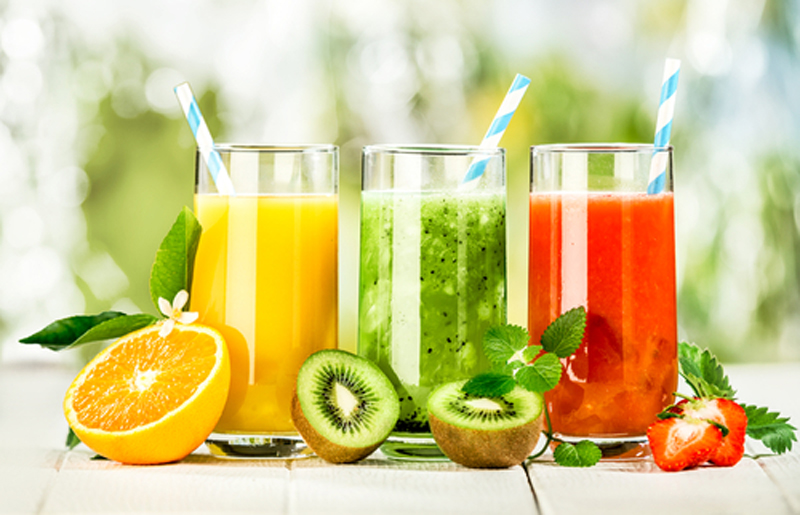According to the Centers for Disease Control and Prevention or CDC, the recommended daily serving of fruits for an adult is 1 ½ to 2 cups, while it’s 2 to 3 cups for vegetables. However, many people struggle to meet these requirements for various reasons. Some have digestive issues while others just aren’t mindful of their fruit and vegetable servings.
Over the years, fruit and vegetable juices are becoming popular because anyone can just consume a bottle while on-the-go. These juices also serve as a solution for someone who has digestive concerns. The consumption of juices, though, hasn’t been proven to totally replace the intake of whole fruits and vegetables in terms of nutritional value because the juicing process will remove most of the fibers. However, juices may make up for the percentage of what you have not consumed based on the daily recommended intake.
Here are some juices that you may want to add on your daily meal plan:
Prune juice
Prunes come from dried plums. Three types of plums are used to produce prunes: the Prunus domestica, which is a European plum, then the Prunus Americana, and Prunus salicina. Prunes are well-known for their effect as laxatives. A review published in a 2014 journal called Alimentary Pharmacology and Therapeutics found that the consumption of prunes treated constipation more effectively than psyllium husk. Psyllium is an over-the-counter treatment that consists of soluble fiber to remedy constipation.
Another benefit of drinking prune juice is that it makes you feel full. It has something to do with its soluble fiber, which slows the digestion of a person. Also, it has a low glycemic index, which means that the sugar level is increased at a slow rate. With this, a person may go for an extended period without feeling hungry, thus helping someone who’s trying to control one’s food intake.
Apple juice
The old and still famous saying, “An apple a day keeps the doctor away,” indeed holds true to what it means. The apple is one of the most potent body cleansers. It contains pectin, which is a natural diuretic, and cleanses a person’s gut.
Apples also contain quercetin, phloridzin, catechin, and others that help in fighting breast cancer and cardiovascular diseases. With its phytonutrients, it helps in the treatment of diabetes. The high fiber content and potassium in apples help rheumatic and arthritic patients, too.
Orange juice
This is the most popular juice that is usually served during breakfast. Its popularity can be attributed to the fruit’s availability almost throughout the whole year. The orange fruit is known to be rich in vitamin C, folate, and potassium. A 240-ml serving of orange juice approximately provides 67% of the RDI or Reference Daily Intake. Make sure that a cold press juicer is used to extract the juice so the nutrients will be intact.
Orange juice also contains antioxidants like carotenoids, ascorbic acid, and flavonoids. These antioxidants mitigate oxidative damage.
Grape juice
Grapes are considered as one of your heart’s best friends. A stilbene phytonutrient called Resveratrol is found in grapes, and it’s responsible for enhancing endothelial function, modifying blood lipids, and restraining inflammation, thus keeping your cardiovascular system healthy.
It also has anthocyanins, which gives it its rich pigment, and an antioxidant believed to enhance the function of the brain.
Cranberry juice
Avocado juice
The avocado fruit, also known as the alligator pear, is a powerhouse when it comes to nutrients as it is one of the few fruits with a high amount of healthy fats and low content of carbohydrates. Since avocado is also high in vitamins C and E, it’s suitable for the strengthening of a person’s immune system. Just like the others, it also has potassium that helps in the maintenance of blood pressure levels.
The avocado fruit contains a high level of antioxidants, lutein, and zeaxanthin, which prevent cataracts and help with a person’s eye health.
Conclusion
The consumption of fruits and their integration into everyone’s daily diet is non-negotiable due to the nutrients they carry. If you don’t have the luxury to pick up fresh fruits every day for your daily meals, you may opt for freshly prepared fruit juices. You can have them while you’re on your way to your office or when you’re on your gym session. It’s all up to you to make that conscious effort to meet your recommended daily food requirements.
Comments
comments